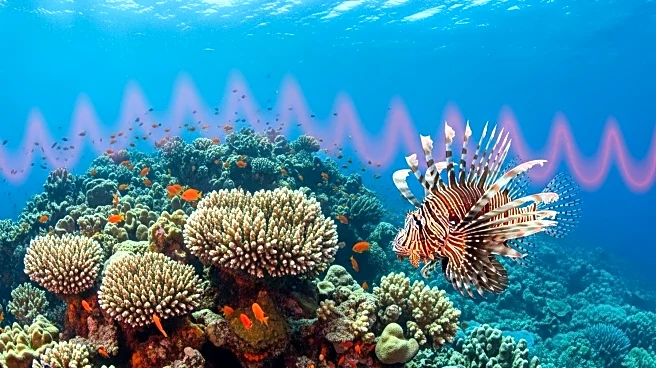What is the story about?
What's Happening?
The Mediterranean Sea is experiencing significant ecological changes due to rising water temperatures, leading to an influx of invasive species. The phenomenon, known as tropicalization, has accelerated since the Suez Canal's expansion in 2015, allowing species from the warmer Red Sea to migrate into the Mediterranean. This has resulted in a shift in biodiversity, with invasive species like lionfish and jellyfish becoming more dominant, pushing native species out of their habitats. The ecological imbalance poses a threat to local fisheries and tourism industries, which rely on the health of native marine life.
Why It's Important?
The spread of invasive species in the Mediterranean Sea has both ecological and economic implications. Local fisheries and tourism industries, vital to the economies of surrounding coastal countries, are at risk due to the decline in native species. The lionfish, a predatory invasive species, is particularly concerning as it disrupts the food chain and threatens smaller fish populations. The situation highlights the need for effective conservation efforts to protect marine biodiversity and support sustainable economic activities in the region.
What's Next?
Conservation efforts, including the establishment of marine protected areas (MPAs), are crucial in mitigating the impact of invasive species and preserving biodiversity. These areas can help stabilize native species populations and support local economies. Global initiatives, such as the United States' national ocean biodiversity strategy, aim to promote marine health and sustainable industries. Local communities and individuals also play a role in conservation by supporting protection initiatives and making environmentally conscious decisions.
Beyond the Headlines
The Suez Canal's role as a gateway for invasive species migration underscores the need for international cooperation in managing ecological impacts. The Mediterranean's warming waters reflect broader climate change challenges, emphasizing the importance of global climate action. The situation also raises ethical considerations regarding human responsibility in preserving marine ecosystems and the balance between economic development and environmental protection.
















